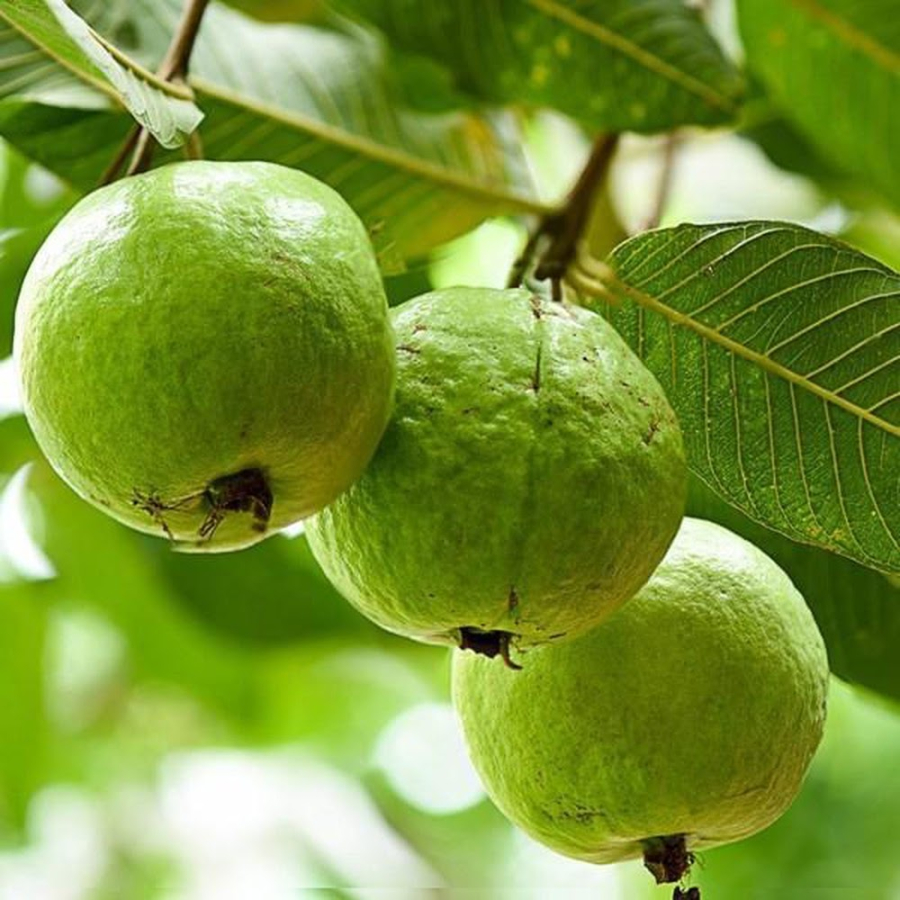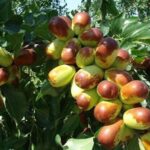The guava tree, with its unique characteristics and symbolism, can offer specific benefits and considerations for enhancing the feng shui of living spaces. Here’s an in-depth analysis of planting guava trees in front of your home from a feng shui perspective.

The Impact of Guava Trees on a Home’s Energy
1. Feng Shui Symbolism of the Guava Tree
The guava tree, with its lush greenery and sweet fruit, is seen as a symbol of abundance and prosperity. In feng shui, it is believed to attract:
-
Wealth and Fortune: Guava trees are thought to bring financial prosperity and good luck to families. The tree’s vigorous growth represents thriving success in careers and personal endeavors. Ripe guavas also symbolize abundance and favorable circumstances.
-
Positive Energy: Green plants, in general, have the ability to enhance the energy of their surroundings. Guava trees, with their robust vitality, can create a positive environment, reducing stress and familial discord.
2. Benefits and Drawbacks of Planting Guava Trees in Front of Your House
Benefits:
-
Aesthetic Appeal: Guava trees, with their vibrant leaves and fruits, enhance the beauty of the entrance, creating a natural and lively ambiance.
-
Protection and Balance: In feng shui, green plants protect the home from negative energies and promote harmony. Guava trees can reduce conflicts and foster a peaceful living environment.
-
Improved Air Quality: Guava trees purify the air by absorbing carbon dioxide and releasing oxygen, benefiting the health of family members and creating a wholesome living space.
Drawbacks:
-
Tree Growth: Guava trees can grow quite large and bushy, potentially obstructing the entrance and reducing airflow. Regular pruning is necessary to maintain a tidy appearance and unobstructed access.
-
Pests and Diseases: Guava trees may attract certain pests and diseases, affecting their health and becoming a nuisance if not properly managed. The presence of pests can create negative energy in feng shui.
3. Considerations for Planting Guava Trees in Front of Your House
To ensure optimal feng shui benefits from planting guava trees in front of your home, keep the following in mind:
-
Planting Location: Choose a planting spot that doesn’t obstruct the entrance or hinder the flow of energy. Ensure the tree receives ample sunlight for healthy growth.
-
Proper Care: Provide adequate water, sunlight, and nutrition for the guava tree. Regularly inspect for pests and diseases and address them promptly.
-
Tree Size: If your front space is limited, consider choosing a more compact guava tree variety or using a pot to easily manage its size.

Feng Shui Guava Tree
Planting guava trees in front of your home can bring multiple feng shui benefits, such as attracting wealth, enhancing positive energy, and creating a beautiful landscape. However, careful consideration of their growth and maintenance is essential to avoid potential drawbacks. When done right, guava trees can contribute to a harmonious and fortunate living environment for your family.
wealth-and-harmony-the-power-of-this-house-plant/’ title=’“Attract Wealth and Harmony: The Power of This House Plant”’>“Attract Wealth and Harmony: The Power of This House Plant”
If you’re seeking a harmonious, prosperous, and happy family life with abundance, there’s a simple yet powerful solution: invite nature into your home. Discover the transformative power of a specific houseplant that holds the key to your heart’s desires. With its lush foliage and vibrant energy, this magical plant will not only bring beauty to your space but also attract positivity, wealth, and harmony into your life. Prepare to be amazed as you witness the immediate and profound impact it has on your family’s well-being and prosperity.





































